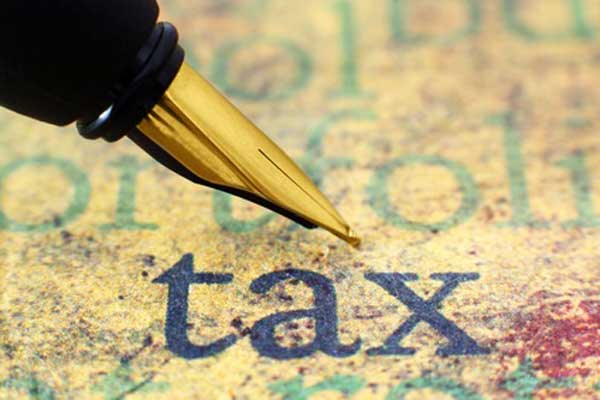The GST is back on the agenda. Over the parliamentary break several Coalition backbenchers and Trade Minister Andrew Robb have raised the question of expanding the scope and coverage of the GST to presently exempt areas, such as education and fresh food.
Predictably, Tony Abbott has ruled out any change to the GST before the next election and before the Government has completed its review of the taxation system. And Bill Shorten has used the Coalition’s musings to give support to his state colleagues in the Queensland election campaign. As Darrin Barnett has pointed out, when a higher GST is raised as a politician’s thought bubble it engenders fierce resistance.
It’s a complex issue, however, and before anyone condemns the idea of a higher or broader GST, they would do well to consider the context in which the idea is raised, because there are three arguments brought forth in support of raising the GST, reflecting three different policy perspectives.
The first argument, pursued by lobbyists who claim to speak for the ‘business community’ (whatever that is) is that lifting the GST would allow for a lower corporate tax rate. It’s an outrageous proposition, which outgoing Treasury Secretary Martin Parkinson rightly slammed as coming from vested interests.
Many claim that Australia’s 30 per cent corporate tax rate compares unfavourably with rates in other countries, but in fact it is a little below the OECD average of 32.5 per cent. And they fail to mention that Australia has dividend imputation, meaning that taxes paid by corporations are passed on as tax credits to domestic shareholders, including superannuation funds. A cut in corporate taxes would be to the benefit of foreign companies operating in Australia – including foreign-owned mining firms – but not to domestic investors.
Besides arguments for reducing company taxes, there are also arguments for reducing personal taxes, as if the rich in Australia are not privileged enough already. There is no defensible case for using a higher GST to benefit foreign investors and overpaid business executives.
The second argument, often pursued by state premiers (remember that revenue collected by the GST is earmarked for the states) is that the GST is underperforming: it isn’t providing the revenue promised when it was introduced in 2000. My estimate, based on 2012-13 ABS taxation data (the latest available), is that had GST been as effective as when it was first introduced, it would have collected $58 billion in 2012-13, but in fact it fell short of that figure by $8 billion. And the shortfall is ongoing.
There are many reasons for this shortfall, including a greater proportion of household consumption being directed to health and education (exempt from GST), and a general belt-tightening in the wake of the GFC, meaning less consumption and therefore less GST. The latest government estimates in the Mid Year Economic and Fiscal Outlook is that domestic consumption this year will not meet budgetary expectations, falling from a budget forecast of 3.25 to 3.00 per cent of GDP – implying about an 8 per cent fall in GST from budget estimates.
Because states are providing labour-intensive services, including health, education and policing (which take about 60 per cent of their budgets), they would understandably be supportive of a rise in the GST, but don’t expect premiers, none of whom hold a strong position in opinion polls, to be making the call.
Many people concerned with equity recoil from any suggestion to increase the GST, but while it is a regressive form of taxation, the state government services it funds, particularly schools and hospitals, have major redistributive benefits, easily compensating for the mild regressivity of its collection (those who want to delve into Gini measures of the equity effects of the GST can see a conference paper I recently prepared for SACOSS.)

More recently Matt Grudnoff of the Australia Institute has produced a paper ‘How to extend the GST without hurting the poor’ making a strong argument, based on equity, for extending the GST to private health insurance and private education. Whatever their partisan labels, state governments are generally more responsive to community needs than the federal government. They don’t waste money on Joint Strike Fighters or subsidies to private health insurers.
The third reason for increasing the GST is that we need to lift our public revenue all around. The rhetoric from the Abbott Government is about closing the budgetary deficit through cutting expenditure, but the reality is that Australia has a badly impaired revenue base, and is one of the lowest taxed of all prosperous countries. In short, we do not collect enough taxation to fund the public goods and services people reasonably expect governments to provide, to fund investments in education and public infrastructure to sustain our economic competitiveness, and to close the budget deficit.
There is a case for GST being part of that higher tax mix – it picks up revenue from those who otherwise don’t pay tax, such as tourists and ‘self-funded’ retirees (i.e. those who are funded by generous tax breaks and inheritances). But that case should be considered only after we have made other repairs to our tax base to make it fairer and more economically efficient – restoring a carbon tax, abolishing tax privileges applying to superannuation and investor housing, getting rid of special provisions for family trusts and employer-provided cars, re-establishing a neutral capital gains tax system, clamping down on corporate tax evasion, and so on.
Then we can consider an increased GST.
Donate To New Matilda
New Matilda is a small, independent media outlet. We survive through reader contributions, and never losing a lawsuit. If you got something from this article, giving something back helps us to continue speaking truth to power. Every little bit counts.



